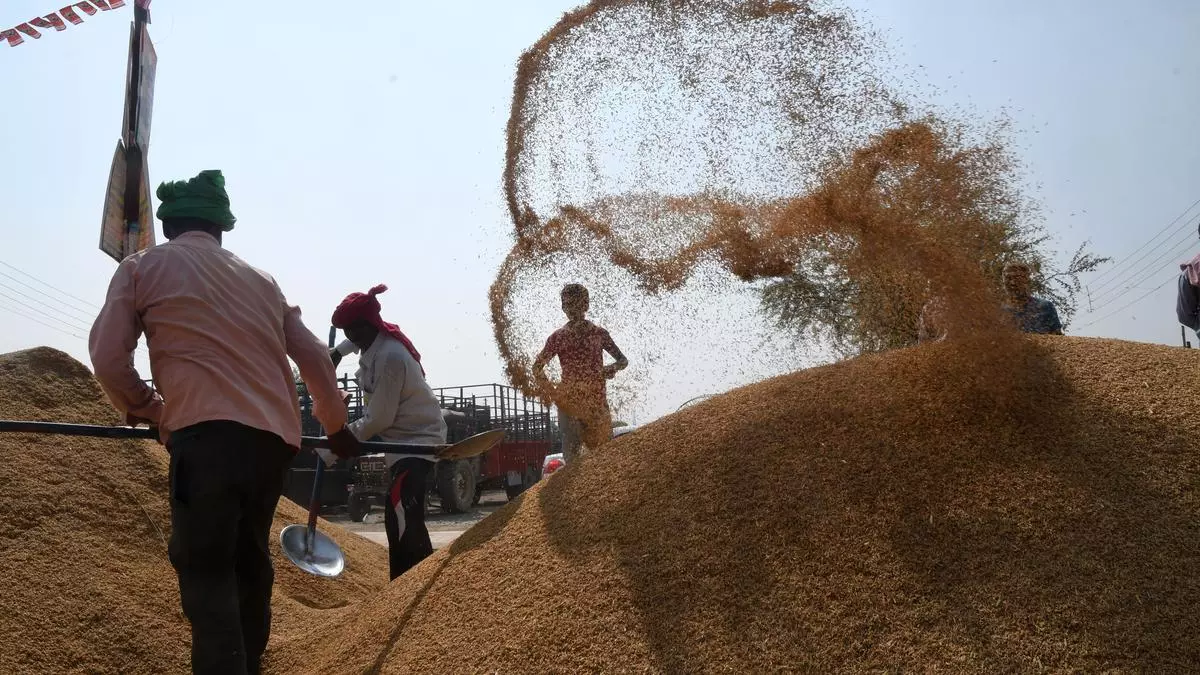Global buyers scout for Indian brown rice as Vietnam begins importing
Buyers of Indian non-basmati rice are now scouring for brown rice, particularly the Swarna variety, with rice supplies tightening up on the global market, exporters say. “The Swarna variety is a short length variety of 5.2 mm. Vietnam has begun to buy it,” said VR Vidya Sagar, Director, Bulk Logix.
“We are getting enquiries for brown rice, though we haven’t struck any deal as yet,” said M Madan Prakash, President, Agricultural Commodities Exporters Association (ACEA). Prakash’s firm Rajathi Group exports rice, onion and maize (corn).
“Brown rice is considered at par with parboiled. So, its export is allowed but at a 20 per cent export duty,” said Delhi-based exporter Rajesh Paharia Jain.
Sagar and Jain said brown rice was commanding $500 a tonne f.o.b. “Only Vietnam has begun buying so far,” Jain said. Sagar said at least 5,000 tonnes could have been shipped to Hanoi so far.
Thai subsidy scheme
The development comes at a time when India has banned exports of white rice, except for government-to-government deals, and imposed 20 per cent export duty on parboiled consignments from the country. It has also fixed $950 a tonne as the minimum export price for Basmati rice shipments.
Besides Indian export curbs, the global rice market has been starved of supplies with Thailand now providing subsidies to its paddy farmers to hold back their produce at least until March 2024.
The Thailand Cabinet has approved a 55 billion baht (₹13,030 crore) scheme to hold back their paddy for at least five months. Bangkok Post reported that loans have also been approved for cooperatives to buy the paddy.
Farmers holding back their produce would be paid 12,000 baht (₹28,450) and an additional 1,500 baht (₹3,550) for storage. The plan is to hold back 3 million tonnes so that domestic prices of the cereal will not surge.
Prices firm up
The US Department of Agriculture has estimated Thailand’s rice production at 19.5 million tonnes (mt) for the 2023-24 season against 20.91 mt in the previous one. “Thailand’s move is a clear indication that a clear picture of the global rice market will be available only around April. India should wait until then before reviewing the curbs,” said trade analyst S Chandrasekaran.
He also called for “occasional” scrutiny of Basmati rice shipments since unscrupulous elements could over-invoice non-basmati white rice and export it.
Thailand’s scheme has resulted in rice prices firming up in the global market, apart from Indian rice crop facing weather woes. “Two weeks ago, parboiled rice prices were around $490/tonne. Now, they have increased to $510-515,” said Bulk Logix’s Sagar. It is still competitive compared to Thailand’s $585 and Pakistan’s $546-550.
Tardy FCI buy
But prices could head south since the Food Corporation of India (FCI) is saddled with huge stocks, he said.
As of November 1, FCI had 20.04 mt of rice stocks, higher than 16.6 mt a year ago. Stocks are higher despite FCI procurement this marketing year from October being 4.4 per cent lower at 16.13 mt.
Trade sources said FCI’s rice procurement has been tardy and a clear picture will emerge around the third week of December.
According to National Centres of Environmental Information, an arm of US weather agency National Oceanic and Atmospheric Administration, at least 26 per cent of India is under drought. The NCEI pointed to reports that said South-East Asia is also reeling under drought due to the El Nino weather phenomenon.
El Nino impact
In particular, it said Indonesia’s rice production will likely drop by 2 per cent to 30.90 mt. Other reports said Thailand is attempting cloud seeding though its Agriculture Ministry is worried over El Nino impact on rice production.
El Nino has impacted India’s south-west monsoon as a result of which it ended up in a nearly 6 per cent deficit. However, the rains have not been evenly spread, affecting kharif crops as a result.
The Ministry of Agriculture has estimated kharif rice production at 106.31 mt this year compared with 110.51 mt last year. India’s rice export curbs are to ensure domestic food security.
